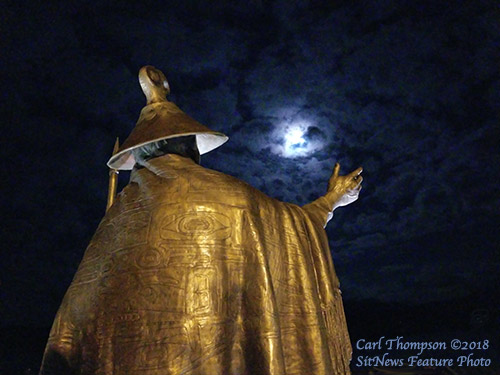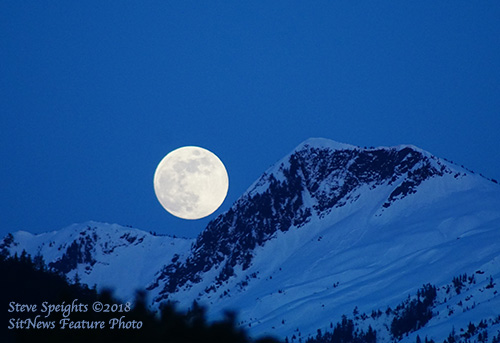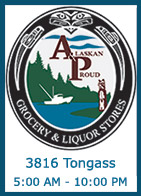




Weekly Specials
Online Shopping; Pickup or Delivery |
|















 Contact Contact 
 Webmail
Letters Webmail
Letters
 News Tips News Tips
 Copyright Info Copyright Info
 Archives Archives
Quick News
Search
 Alaska Alaska
 Ketchikan Ketchikan
 SE Alaska SE Alaska
Columns
- Articles
 Dave Kiffer Dave Kiffer
 Money Matters Money Matters
Historical
Ketchikan
 June Allen June Allen
 Dave
Kiffer Dave
Kiffer
 Louise
B. Harrington Louise
B. Harrington
Sports
 Ketchikan Links Ketchikan Links
Public Records
 FAA Accident Reports FAA Accident Reports
 NTSB
Accident Reports NTSB
Accident Reports
 Court Calendar Court Calendar
 Recent Filings & Case Dispositions Recent Filings & Case Dispositions
 Court Records Search Court Records Search
 Sex Offender Reg. Sex Offender Reg.
 Public Notices Public Notices
 AST Daily Dispatch AST Daily Dispatch
 KTN
Police Reports KTN
Police Reports
 Juneau Police Reports Juneau Police Reports
Weather,
Webcams
 Today's
Forecast Today's
Forecast
 KTN
Weather Data KTN
Weather Data
 AK
Weather Map AK
Weather Map
 AK Weathercams AK Weathercams
 AK Earthquakes AK Earthquakes

|
|

Saturday
March 31, 2018

Blue Moon
The last Blue Moon until 2020 appears to be greeted by Chief Johnson, one of the 7 figures on The Rock, a monument to Ketchikan's heritage. The Rock tells the story of how Ketchikan came to be.
Front Page Feature Photo By CARL THOMPSON ©2018
|
|
Fish Factor: Lower fish prices & quotas mean less income coming into coastal economies this year By LAINE WELCH - Alaska is expecting a reduced salmon harvest this year, setting up a trifecta of falling fish revenues for Alaska fishermen, coastal communities and state coffers.
Coming on the heels of an 80 percent crash of cod stocks in the Gulf of Alaska and a 10 percent decline in halibut catches, state fishery managers are projecting a 2018 salmon harvest at 149 million fish, down 34 percent from last season.
The shortfall stems from lower forecasts for returning pink salmon. The Alaska Department of Fish and Game is forecasting a humpie harvest of just 70 million fish, down by more than half from last summer.
For sockeye salmon, a statewide catch of about 52 million is down 1.8 million fish from 2017, which was the 5th largest red salmon harvest since 1970.
By far, most of the sockeyes will come from Bristol Bay’s nine river systems where a projected harvest of 37.5 million would be down by more than a million, still well above the 10 and 20 year averages for the Bay.
Alaska’s chum salmon catch last year of 25 million also was the largest haul since 1970. This year’s statewide catch is expected to produce 21 million chums, down by nearly four million.
The 2018 coho catch is pegged at 5.8 million, nearly 600,000 more silvers than last season.
For Chinook salmon, the forecast calls for a catch of 99,000 kings in areas outside of Southeast Alaska, where the numbers are determined by treaty with Canada. Declining stocks have forced fishery managers to impose tough restrictions on Chinook catches for all users.
Alaska’s salmon season officially gets underway in mid-May when sockeye and king salmon return to the Copper River near Cordova. That’s followed by commercial openers across the state from Ketchikan to as far north as Kotzebue.
Alaska’s 2017 harvest of 224 million salmon was valued at nearly $680 million at the docks. Find a summary of the 2017 season and outlooks for 2018 at the Alaska Dept. of Fish and Game website.
Halibut tanks:
As feared, prices for halibut sank like a stone as the season’s first fresh fish crossed the Alaska docks last week.
The fishery opened on March 24 and traditionally, the first landings fetch high prices and then drop as the market settles out. That’s not the case this year.
Prices started at $4.50 to $5 a pound at major ports – roughly $2 lower than fishermen have received in recent years.
At Kodiak, for example, one major buyer paid $4.50/lb for first deliveries and the price dropped to $4.25 the next day. Seward starting prices were reported at $4.50-$4.75-$5.00 based on fish weights. Yakutat was paying the highest price at $5.25 across the board.
“The market is really lackluster and buying is on spot,” said one Kodiak processor, meaning purchases and payments are made immediately rather than on longer term contracts.
The push back to escalating Pacific halibut prices began last October when payouts to fishermen tumbled for the first time in four years. Buyer resistance was bad enough to force some Alaska processors to turn away deliveries, or buy only from their long-term boats.
One wholesale buyer commented: “Who in their right mind is going to pay $30 or more for a pound of fish?”
Adding to the market snub momentum – reports of up to 10 million of pounds of fresh, less pricey Atlantic halibut coming into the U.S. from eastern Canada. The close proximity of that fresh fish to the eastern seaboard has cut into Alaska’s share of those customers, and the Canadian fish already is making inroads heading west.
In 2005 Atlantic halibut accounted for just four percent of the total North American halibut harvest, said economist Andy Wink of Wink Research. Since then, Pacific halibut harvests have declined by 63 percent while Atlantic harvests have increased 195 percent and imports to the U.S. have nearly tripled.
Another headwind for Alaska fishermen as the halibut season gets underway –hefty hold-overs of halibut reportedly remain in freezers from last season.
A fleet of about 2,000 Alaskans fish commercially for halibut each year from Southeast to the Bering Sea. The average price paid to fishermen in 2017 was $6.32 per pound with a fishery value of $112 million at the docks.
The Alaska halibut catch limit for 2018 is 17.5 million pounds; the fishery runs through November 7. - Much More...
Saturday PM - March 31, 2018
|
|

Blue Moon Rises
The last Blue Moon until 2020 rises over Deer Mountain in downtown Ketchikan.
Front Page Feature Photo By STEVE SPEIGHTS ©2018
|
|
Southeast Alaska: Alaska Senate Urges Management of Sea Otters to Protect Shellfish By MARY KAUFFMAN - The Alaska Senate passed a resolution Thursday urging the federal government to take action and protect Alaska’s shellfish for subsistence, commercial, and recreational use from predation by sea otters.
The resolution urges the United States Congress to amend the Marine Mammal Protection Act; urging certain federal agencies to permit Alaska Native organizations and the Alaska Department of Fish and Game to co-manage, take, and study sea otters; and urging the United States Secretary of the Interior to review evidence and waive certain provisions of the moratorium on taking sea otters.
“The food locker for Southeast Alaskans is rapidly being depleted by sea otters,” said Sen. Bert Stedman (R-Sitka) the resolution’s sponsor.
Quoting a news release from Sen. Stedman, under federal management, sea otters have increased in number from zero in the early 1960s to an estimated 51,000 today. The sea otter population is growing largely unchecked by approximately 13 percent per year. Sea otters have also spread across a large area in Southeast Alaska, eating large quantities of shellfish wherever they go, and causing major negative impacts to shellfish populations.
By 2030, the Alaska State Board of Fish estimates that if the federal government continues to do nothing to reduce the sea otter population, sea otters will be eating over half a billion pounds annoualy of shellfish and other foods. These same shellfish are heavily relied upon for subsistence, commercial, and recreational use by Alaskans.
Federal rules under the Marine Mammal Protection Act allow hunting of sea otters by Alaska Natives, but they require hunters to have at least one-quarter Native ancestry.
The resolution urges the federal government to coordinate with the State of Alaska and Tribes to take more sea otters and reduce the population. It also urges the federal government to change its blood quantum requirement to allow more Alaska Natives to participate in the hunting of sea otters.
Alaska Board of Fisheries Chairman John Jensen’s support letter to Secretary of the US Department of Commerce and the Secretary of the US Department of Interior, Jensen urged federal action on sea otter management. He wrote, "The growing population of otters may continue to harm and ultimately eliminate some key fisheries that are important sources of food and livelihoods for coastal communities, subsistence harvesters, and commercial fishermen. The address this unique marine mammal recovery, the Board is in support of efforts by the US Departments of Commerce and Interior to review the MMPA [Marine Mammal Protection Act] with the intent to allow the affected communities to responsibly and sustainability manage the species and is encouraging Congress to undertake similar review." A request Jensen wrote the Alaska Board of Fisheries does not take lightly. |
|
Jensen wrote, "Many areas carefully managed for long-term sustained fisheries are now gutted with no expectation of species recovery in the foreseeable future."
At the Board's Southeast meeting, Jensen wrote, commercial fishing divers reported no remaining signs of prey species in areas where sea otters are abundant.
"As these commercial fisheries close, fishermen seen new areas including those near communities that are heavily used by local subsistence harvesters. These migrations create increased user conflict, often leading to addition closures for commercial harvesters.," Jensen wrote.
"Loss of these fisheries will have a significant economic impact on many rural coastal communities; in 2016 alone, the value paid to commercial harvesters for key shellfish species was $18.6 million spread across 447 permits," wrote Jensen.
The Organized Village of Kake, a federally recognized Tribal Government, in a resolution submitted to the Alaska Senate voiced their opposition to the Alaska State Legislature's efforts to receive a scientific permit for the purposes of sea otter population control.
The Organized Village of Kake also stated in their resolution their opposition to the Alaska State Legislature's efforts to create a management plan their opposition to the Alaska Legislature's efforts to "expand the scope of allowable uses for harvest of marine mammals; require Alaska Natives to purchase a hunting license to hunt sea otter, or to Allow the Alaska Department of Fish & Game to enter a cooperative agreement to co-manage subsistence uses of marine mammals, especially the authority to permit the sale and foreign export of sea otter pelts.
Lianna Jack, Executive Director of the Alaska Sea Otter and Steller Sea Lion Commission, stated in her written testimony regarding SJR 13 on March 12, 2018, the Alaska Sea Otter and Steller Sea Lion Commission Board met March 7, 2018 and SJR 13 was included on the agenda. The Board voted unanimously to strongly oppose SJR 13 and to approve TASSC Resolution 18-01, which was submitted to the Resources Committee for the record in the hearing. - More...
Saturday PM - March 31, 2018
Alaska: New Deputy Regional Forester for Alaska Region Announced - USDA Forest Service Interim Chief Vicki Christiansen has announced the appointment of Jerry Ingersoll as the new deputy regional forester for the Forest Service’s Alaska Region. As deputy regional forester, Ingersoll will help oversee management of more than 22 million acres of National Forest System lands in Southcentral and Southeast Alaska.
“Jerry’s more than 30 years of Forest Service experience specializing in natural resources, collaborative stewardship and timber make him very well qualified for this job,” Christiansen said. “His more than five years spent as the District Ranger for the Ketchikan-Misty Fjords Ranger District and time working the Alaska desk handling congressional relations make him especially well-suited for the Alaska region, and I am very pleased he is bringing his wide experience to this new role.”
Ingersoll graduated with honors from the University of California, Berkeley with a B.S. in Forestry. After obtaining his masters, he was also a Senior Executive Fellow at the Harvard Kennedy School of Government.
Ingersoll joined the Forest Service as a management analyst at the Pacific Southwest Research in Berkeley. He held numerous positions across the country working in planning, forestry and timber. Most recently, he served as the Forest Supervisor of the Siuslaw National Forest, a coastal temperate rainforest located on the central Oregon Coast for the past eight years. Under his leadership, the Siuslaw has become known for delivering collaborative programs of restoration, recreation and partnerships, and successful second-growth timber sales. - More...
Saturday PM - March 31, 2018
|
Alaska Science: Overflow ice as northern oasis By NED ROZELL - Overflow ice, also known as aufeis, is like a field of Arctic daisies that comes back year after year. Aufeis that clogs northern valleys is born when frigid winter air meets cold water welling up to the ground’s surface. Aufeis dies when warm air finally melts it in July or August.
Fields of aufeis (“off-ice”), some covering entire valley bottoms 10 feet thick, can terrify people who float northern rivers. While swatting at moose flies on 80-degree June days, rafters might see their river disappear into an ice cave ahead.
Because these white features that endure long into the green of summer are so striking, scientists have studied them for years. They have found that aufeis (German for “ice on top”) is often downstream of underground springs that gush all winter long.
Many Alaskans know this ice as overflow. Its gradual buildup has created glaciers on Alaska roadways and has in midwinter forced people from cabins as their property slowly transformed into a skating rink.
Though many scientists who have looked at aufeis have been engineers or hydrologists, a team of ecologists are likening the ice fields to oases in the cold desert of the Arctic. Aufeis, they think, enhances the diversity of northern life both in summer and winter.
Living in Tuscaloosa, Alabama, Alex Huryn sleeps a long way from the nearest aufeis, but he has traveled to the University of Alaska Fairbanks’ Toolik Field Station for decades and is co-author of a book on the far North’s natural history.
Huryn is lead scientist on a study of a resilient spread of ice on the Kuparuk River. The Kuparuk flows from near Toolik Field Station north of the Brooks Range across 200 miles of flats to the Beaufort Sea.
Not far from Toolik Lake, a giant pan of aufeis forms each winter and endures most of the summer, crowding the gravel floodplain of the Kuparuk River. Huryn and his colleagues have probed and sampled and aimed radars at the ice and the underlying riverbed.
They are finding that the ice seems to be enabling year-round life in that frigid, dark place. As it melts in summer, the ice rejuvenates the river by providing nutrients and food to downstream creatures. Aufeis fields can provide one third of a river’s summer flow. - More....
Satuarday PM - March 31, 2018
|

Political Cartoon: Congressional Easter Egg Hunt
By RJ Matson ©2018, CQ Roll Call
Distributed to paid subscribers for publication by Cagle Cartoons, Inc.
Getting More Resources Against Trafficking our Kids By Senator Dan Sullivan - Most Americans and Alaskans think that human trafficking is a problem that happens in other, far-away places. And many are shocked to realize that it's happening right here, in America and in our state, and that the problem is actually increasing, dramatically.
A disturbing study last year found that one in four girls, and one in five boys, who were receiving services from Covenant House Alaska, reported being victims of sex trafficking. The National Center for Missing and Exploited Children reported a whopping 846 percent increase from 2010 to 2015 of children who were being trafficked — an increase that the organization attributes to the internet. - More...
Sunday AM - April 01, 2018
 |
Should there be a new professional responsibility to help victims of unknown emerging technological crimes? By Liberty-Anne Johnson - Living in the interior of Alaska - prior to Ketchikan - in the 1980s, I learned that it was required by state law to stop and help those who found themselves in a ditch along the ALCAN highway. Law enforcement and emergency couldn’t always arrive first or immediately given the vast highway paired with a low ratio of Alaska State Troopers and the distance required to travel. Provision of first response or aid expected to be administered by those who stopped was above normal skills thought required in those circumstances in other states and those married on the border specially trained for life-threatening incidents. - More...
Sunday AM - April 01, 2018
 |
NOT FUNNY, KIFFER By David G Hanger - There is nothing at all funny about your muse on local road conditions and potholes; incompetence and probably worse is not in any sense amusing, but before I delve into that subject I will briefly address your silliness about donut spare tires. The solution is very simple and is done immediately by any driver and vehicle owner who knows what they are doing. You rip that worthless piece of junk off its rim and replace it with a standard-sized tire, and you make sure you buy a vehicle that has a spare tire well large enough for a real tire to fit. I know; it’s complicated. - More...
Tuesday PM - March 27, 2018
 |
Are Democrats bracing for all-out ‘internecine warfare?’ By John Grimaldi - Do you get the feeling that the Democratic Party appears to be moving further and further to the left, adopting what some would call “extreme” socialist policies and even turning against the moderates in the party? Well, it is. Just look at what happened to one of the most popular Democrats in Congress, Dianne Feinstein. She has served her California constituency for some 26 years, winning election after election since 1992. But, she was unable to win an endorsement at the recent California Democratic Party convention, losing to a relatively unknown progressive contender - More...
Saturday AM - March 24, 2018
 |
No New Epidemic of Drugs By Angelo Martin - I am astonished at the articles in the Ketchikan Daily News about drugs in the community as if they're surprised or it is something new. When I arrived in K-town drugs were everywhere and continued to be there all the years I lived there, 21 years. You would be surprised who was using them. Cocaine thrived as other stuff. - More...
Saturday AM - March 24, 2018
Trump The Terrible By Donald Moskowitz - President Trump's character flaws are overwhelming his administration and placing our country in jeopardy. Former CIA Director John Brennan referred to Trump as " unstable, inept, inexperienced, and also unethical ". I add divisive, chaotic, and terrible judgement. - More...
Saturday AM - March 24, 2018
By the People, for the People By Terri Robbins - We have a system of government characterized by the principles of “By the People, For the People.” These were revolutionary ideas in the 1700s. Citizens, for the first time, had the freedom to affect the big decisions that directly impacted their lives. Our founders realized that with that freedom must necessarily come responsibility-the responsibility to vote, to serve, and to contribute to the well-being of our nation. Ours was to be a “government by the people.”- More...
Sunday PM - March 18, 2018
 |
FOR MOST OF YOU THE LIMITED LIABILITY COMPANY (LLC) IS AN ABSOLUTE PIECE OF WORTHLESS JUNK By David G Hanger, EA, MBA - It may be that a limited liability company might have some benefit for a business that has 50 or 500 investors, but under ordinary circumstances such a business entity would adopt the corporate form of business organization. For a closely-held business, one owned by one or a handful of members, the limited liability company (LLC) is an absolute piece of worthless junk. I do not care who tells you otherwise. The intent of a limited liability company is to eliminate personal liability for what the business does, to keep you from being sued or held liable for business obligations. There is no possibility, none, zero, that an LLC will protect you in this way. All that paperwork will be instantaneously shredded, and you will be held liable for all business obligations. That is a statement of fact in the state of Alaska, and generally overall in the United States. - More...
Sunday PM - March 18, 2018
 Webmail your letter or Webmail your letter or
 Email Your Letter To: editor@sitnews.us Email Your Letter To: editor@sitnews.us
|
Articles &
photographs that appear in SitNews may be protected by copyright
and may not be reprinted or redistributed without written permission
from and payment of required fees to the proper sources.
E-mail your news &
photos to editor@sitnews.us
Photographers choosing to submit photographs for publication to SitNews are in doing so, granting their permission for publication and for archiving. SitNews does not sell photographs. All requests for purchasing a photograph will be emailed to the photographer.
|
|



















The Local Paper is
available online.
Click here for this week's printed edition (PDF)

|
|

![]() Contact
Contact ![]()
![]() Webmail
Letters
Webmail
Letters![]()
![]() News Tips
News Tips![]()
![]() Copyright Info
Copyright Info![]() Archives
Archives![]() Alaska
Alaska![]() Ketchikan
Ketchikan![]() SE Alaska
SE Alaska![]() Dave Kiffer
Dave Kiffer![]() Money Matters
Money Matters ![]() June Allen
June Allen![]() Dave
Kiffer
Dave
Kiffer![]() Louise
B. Harrington
Louise
B. Harrington ![]() Ketchikan Links
Ketchikan Links![]() FAA Accident Reports
FAA Accident Reports ![]() NTSB
Accident Reports
NTSB
Accident Reports![]() Court Calendar
Court Calendar![]() Recent Filings & Case Dispositions
Recent Filings & Case Dispositions ![]() Court Records Search
Court Records Search![]() Sex Offender Reg.
Sex Offender Reg.![]() Public Notices
Public Notices![]() AST Daily Dispatch
AST Daily Dispatch![]() KTN
Police Reports
KTN
Police Reports![]() Juneau Police Reports
Juneau Police Reports ![]() Today's
Forecast
Today's
Forecast![]() KTN
Weather Data
KTN
Weather Data![]() AK
Weather Map
AK
Weather Map![]() AK Weathercams
AK Weathercams![]() AK Earthquakes
AK Earthquakes











































